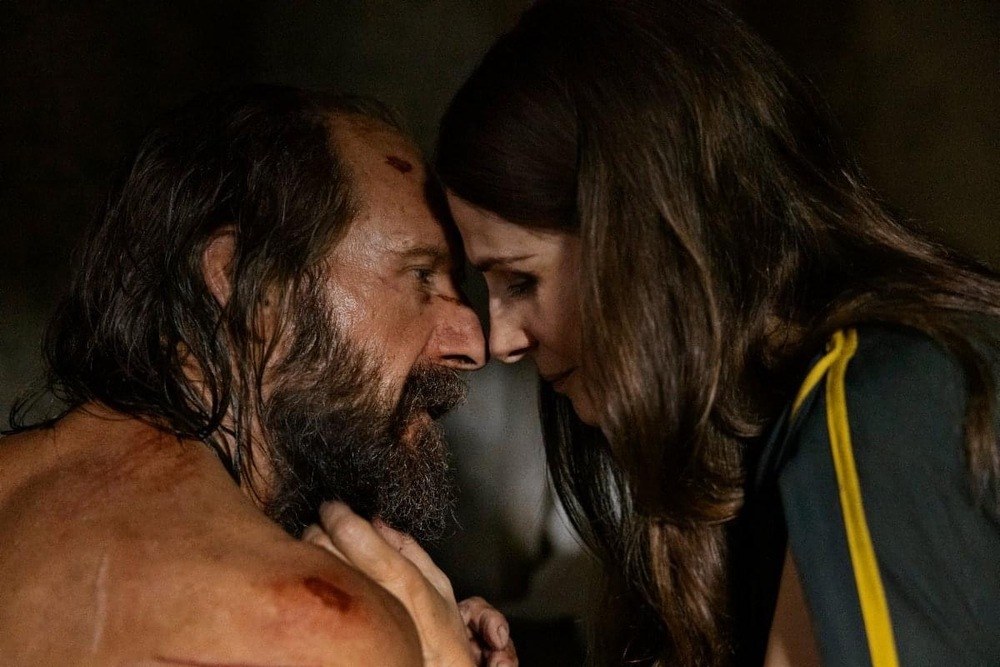The Return

Ralph Fiennes and Juliette Binoche star in THE RETURN. (Photo: Bleecker Street)
As long as there has been war, there has been PTSD. In the case of The Return, such afflictions date back millennia.
Ralph Fiennes is terrific in this stylish and evocative drama, an ambitious reinterpretation of epic poem the Odyssey that strips away the gods and monsters from the 3,000-year-old source material and focuses on the humans at its core.
Although the chronological setting is never confirmed, the story follows Greek king and warrior Odysseus (Ralph Fiennes) as he washes up on his home island of Ithaca after being away for 10 years fighting the Trojan War.
Looking haggard and unrecognizable, he’s burdened by guilt and grief from the conflict while he picks up the pieces. He learns that his wife, Penelope (Juliette Binoche), has rebuffed any suitors while awaiting his return yet assuming his death.
Odysseus finds the territory populated by opportunistic scoundrels looking to claim the throne and win the heart of a wealthy widow.
Caught in the middle of this bitter power struggle amid a volatile atmosphere of simmering hostility and distrust is their son, Telemachus (Charlie Plummer), a troubled young man who barely remembers his father. “She’s afraid and ashamed,” he says, before turning to his mother. “You know what they say about you.”
Penelope is forced to endure rumors while she’s openly mocked and ridiculed. Meanwhile, Odysseus remains cautions about revealing his true identity as he summons the strength to win back his family and his kingdom. As the story funnels toward an inevitably dark and bloody climax, the powerful romantic underpinnings fuel our sympathies.
Italian director Uberto Pasolini (Nowhere Special) captures the scenic and rugged harshness of the seaside landscape, contrasting the visual beauty with the ugliness inherent in the conflict.
Fiennes offers a fully committed portrayal both from a physical and psychological perspective, as a man facing a new war in his homeland but also in his head. An understated Binoche communicates her despair and inner turmoil mostly through facial expressions and body language.
The supporting characters aren’t developed with as much depth in the screenplay, and some of the dialogue feels clunky and anachronistic.
Deliberately paced and downbeat, The Return rewards patience through a classic ancient tale with brains to match its brawn.
Rated R, 116 minutes.